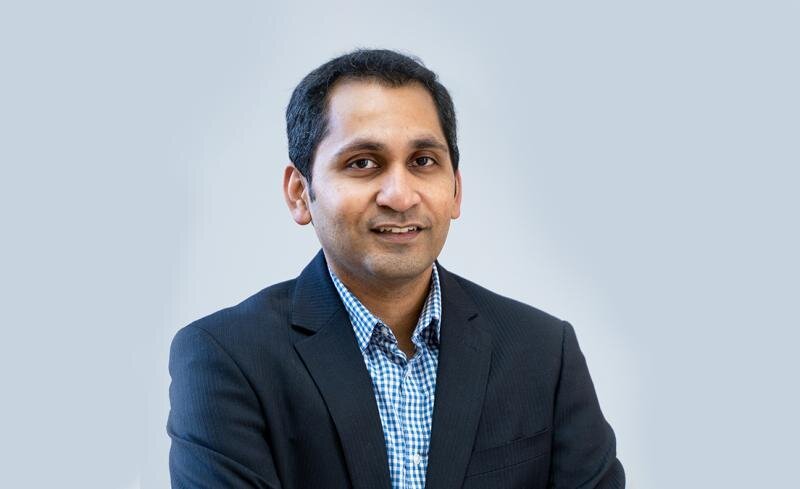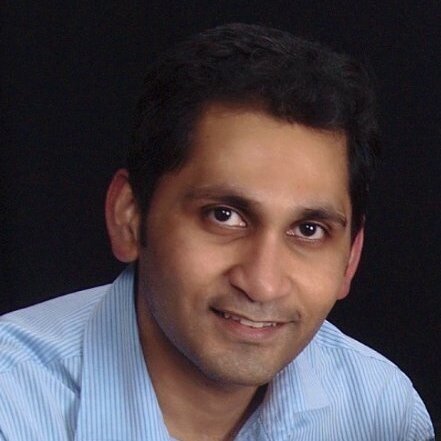I recently went one on one with Deepak Gaddipati. Deepak is a longtime technology executive focused on Artificial Intelligence with extensive experience commercializing deep learning and machine vision-based technologies, and he currently serves as Chief Technology Officer of VirtuSense Technologies. Deepak has multiple patents and publications in AI and machine vision.
Adam: Thanks again for taking the time to share your advice. First things first, though, I am sure readers would love to learn more about you. How did you get here? What experiences, failures, setbacks or challenges have been most instrumental to your growth?
Deepak: My graduate degree is in Electrical Engineering with a focus on machine vision and neural networks. After completing grad school I was part of the team that developed airport security scanners for automatically detecting hidden explosives on people and in checked luggage that is used across most airports in the world. Following this, I worked with the US Army to develop technology that centered on movement, motion tracking, and analysis of people; teaching machines to learn and understand actions and behavior. During my time working with the US Army, my 68-year-old grandmother fell and broke her hip while walking to the bank. She ended up dying within 10 days of her fall leaving me questioning, “what could have been done to prevent her from falling in the first place?”… My search for an adequate answer to this question led me to start VirtuSense, a company dedicated to the early identification of signs that indicate a forthcoming adverse event for older adults.
To succeed, of course, you need a strong team, driven to ensure that customers are happy with their experience. Initially, that was an immense struggle as we worked through different client support models and personnel with varying levels of talent and engagement, and struggled to assemble a sales team with strong industry connections and drive. Thankfully, we have come a long way in that area and client satisfaction as well as the volume of newly onboarded clients reflects this.
Adam: How did you come up with your business idea? What advice do you have for others on how to come up with great ideas?
Deepak: The loss of my grandmother to a fall was the major trigger. Sadly in many cases, people are only deemed to be at risk for a fall after they fall, and to me, it sounded completely backward. Initially, we thought that all we needed to do was build the best product to identify falls before they happen and the market would be immediately receptive. This, of course, was not the case. Healthcare, as we know now, is tremendously difficult to introduce new technologies in. For one, we learned that everything in healthcare takes twice as long to bring to market than in other industries, first you have to validate your solutions, then wait for the research institutions to publish the work, and then finally bring it to market. Of course, then you begin to encounter a whole host of other challenges such as; pricing, budget cycle issues, length of sales cycle issues, and change management as our solutions also often involve shifts in perspective from reactive to proactive medicine and care. The way I approach life is pretty simple. When you see a problem, you have two options:
1. You can join the crowd and complain about the way things are or
2. You can join the minority and seek a solution.
I want to be in the minority of people, seeking to create meaningful and positive changes addressing known problems with creative solutions.
Adam: How did you know your business idea was worth pursuing? What advice do you have on how to best test a business idea?
Deepak: Before we built our prototype, we did extensive research, first interviewing the end-users. People like physicians, physical therapists, nurses, and everyone in between to understand the real magnitude of the problem and what a truly effective solution would look like. We researched what the current landscape of fall prevention technology and studied evidence-based literature to guide our initial efforts. Once we had a very clear understanding of our market we built a prototype and started selling it to research institutions before really diving into a huge development spree. We built quickly and failed fast to get a market-ready product together quickly without sacrificing quality. The key was working with our end users from day one to build products we knew they would use.
Adam: What are the key steps you have taken to grow your business? What advice do you have for others on how to take their businesses to the next level?
Deepak: Everything hinges on relationships. Sometimes the relationships we developed were more important than the product itself. When you create these strong relationships they create opportunities for more relationships; you partner with them, share revenue, and help them in the same way they help you. This is what makes you grow faster. Beyond relationships, CASH is KING! Spend money wisely, take calculated risks, and when you fail, learn fast. Focus on learning from every mistake you make along the way so that you don’t repeat them.
Adam: What are your best sales and marketing tips?
Deepak:
Don’t be afraid to hear a NO, but make sure you ask why they said no. Doing this over and over again will develop your sales pitch and refine your product.
When you’re selling or marketing your products always put yourself in the shoes of your customer. Why should they spend their money on your product? Would you buy it if you were them?
Hire salespeople who are hungry and driven. Drive is remarkably hard to predict but critically important. Past success or credentials do not ensure future ones. Reference checks, industry knowledge, and a rigorous interview process can save you a lot of headaches in the long run.
Marketing is complex and multifaceted. Hire people who know how to navigate your industry but aren’t afraid to break the mold.
Don’t always trust consulting firms. They don’t understand your product like you and your team and they charge 3x to 5x for what you can do internally.
Adam: In your experience, what are the defining qualities of an effective leader? How can leaders and aspiring leaders take their leadership skills to the next level?
Deepak: Never stop innovating. Never get too comfortable. Hire people smarter than you and then trust and empower them to do the work you hired them for. When you give feedback, make it constructive. Treat both your employees and customers how you would like to be treated. You will get out what you put in.
Adam: What is your best advice on building, leading and managing teams?
Deepak: Accept responsibility for problems with your product and give credit to your team where credit is due. When you get people who really stand out, recognize it, reward it, and encourage them to keep it going. Your team will be more connected with your mission when they’re recognized for their efforts. When you have a team that’s empowered to do their best work don’t get in their way. Learn how to delegate and oversee instead of trying to micromanage. If you try to do everything you’ll become a bottleneck and everyone’s efforts will suffer.
Adam: What are your three best tips applicable to entrepreneurs, executives and civic leaders?
Deepak:
Be compassionate; not just with your employees but your clients and partners as well.
Be smart. Learn from your mistakes but don’t repeat them. Take calculated risks but don’t get overconfident.
Be trustworthy. Create an environment where there is mutual trust between you and your employees, customers, friends, and family.
Adam: What should everyone understand about AI?
Deepak: The advent of AI will have similar effects to that of the industrial revolution. AI is here to stay and will make our lives better, but it will also displace a lot of things. Disruption is a favorite term in the tech world and I believe we are only at the tip of the iceberg.
Adam: What should entrepreneurs and leaders in particular understand about AI?
Deepak: AI will disrupt a lot of existing industries but it will create a lot of new ones. You disrupt or you get disrupted. The tech and tools that use AI will grow 5X faster with 1/5th of the resources. In my experience it is not like programming, an AI developer’s knowledge is very space specific and domain central. Hire the correct talent with relevant experience for your company or else you will be working towards the wrong goal and never see the results you want.
Adam: What are the biggest conceptions about AI?
Deepak: The big misconception about AI is that it can learn by itself, becoming better and adaptable without a lot of work and development. The AI models that we know of today are not capable of doing that. We will need to make massive technological advances before that happens.
Adam: What is the single best piece of advice you have ever received?
Deepak: I’ve received a lot of great advice from very knowledgeable business leaders during my career, but the one that sticks with me most is: “If you ask people for money they will give you advice and if you ask people for advice they will give you money.”









